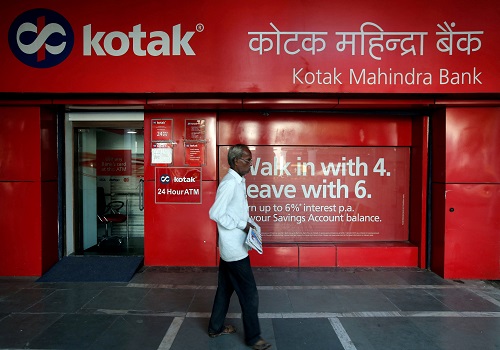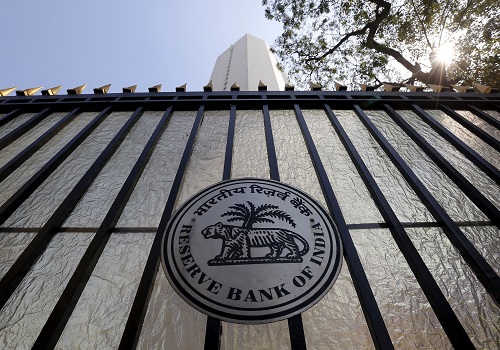Banking Sector Update - BFSI - Banks - RBI Consultation Paper on MFI regulation - More liberal for NBFC-MFIs, while alleviates any potential regulatory risk for SFBs/Banks By Emkay Global

Follow us Now on Telegram ! Get daily 10 - 12 important updates on Business, Finance and Investment. Join our Telegram Channel
RBI Consultation Paper on MFI regulation - More liberal for NBFC-MFIs, while alleviates any potential regulatory risk for SFBs/Banks
The RBI has today released a Consultation Paper to review and harmonize the extant guidelines for NBFC-MFIs (which now represent 31% of MFI loans), as well as other RBI-regulated entities - NBFCs (9%), Banks (41%) and SFBs (19%) - mainly on the definition of a MFI borrower/qualification of asset, borrowers indebtedness, pricing of loan and transparency on pricing. That said, the RBI has noted that certain prudential norms specific to NBFC-MFIs - e.g., provisions, Net-owned funds, Capital adequacy (15%) etc. - should not be harmonized with other REs to address the idiosyncratic risks stemming from concentrated exposure of NBFC-MFIs to unsecured microfinance loans. These are consultative guidelines and the final deadline for comments from all stakeholders is on July 31, 2021, post which the final guidelines will be issued.
Key Highlights
* Common definition of MFI borrower for all RBI Regulated Entities (REs) including banks, NBFCs and NBFC-MFIs. An MFI borrower is identified by annual household income not exceeding Rs125,000 for rural and Rs200,000 for urban and semi-urban areas. For this purpose, ‘household’ means a group of persons normally living together and taking food from a common kitchen.
* All RBI-regulated entities should have board approved policy for household income assessment, capping and periodicity of repayments and disclosure of all-inclusive interest rates for borrowers.
* Repayment and Indebtedness: Indebtedness is linked to the household income (capped at 50% of household income). Thus, the payment of interest and repayment of principal for all outstanding loans of the household at any point of time shall be capped at 50% of the household income. Existing loans to the households which are not complying with the limit of 50% of the household income shall be allowed to mature.
* All RBI-regulated entities should offer MFI loans without collateral and MFI borrowers should have the right of prepayment without attracting any penalty similar to NBFC-MFIs.
* Disclosure of pricing-related information in a standard simplified fact-sheet and minimum, maximum and average interest rates charged on microfinance loans. The pricing of MFI lenders to be displayed on their websites. A simplified fact sheet for borrowers related to pricing of microfinance loans shall be made mandatory for all Res.
Changes in regulations specifically for NBFC-MFIs
* Earlier, NBFC-MFIs were subject to a loan amount limit of Rs125,000 (Rs75,000 in first cycle and exclusion of loans for meeting education and medical expenses from loan limit) and a minimum tenure of 24 months for loans above Rs30,000. With the proposed regulation of linking the loan amount to household income, an absolute cap on loan amount would no longer be necessary, and thus the loan cap should be withdrawn.
* It is observed that over-emphasis on income-generating loans may drive borrowers toward more expensive informal loans for fulfilling their entire financial needs, and thus limits regarding minimum 50% of loans for income generation purpose, which are presently applicable only to NBFC-MFIs, shall be withdrawn.
* Alignment of pricing guidelines for NBFC-MFIs with guidelines applicable to NBFCs. Earlier max interest charted by NBFC-MFI was capped at the lower of (i) the cost of funds plus a margin cap of 10% for MFIs with loan portfolio of Rs1bn or above and 12% for others; or (ii) the average base rate of the five largest commercial banks by assets multiplied by 2.75. Further, i) the maximum variance permitted for individual loans between the minimum and maximum interest rate cannot exceed 4%; ii) processing charges were capped at 1% not be included in margin cap. Under the new guidelines, the RBI has advised for the removal of interest rate caps and instead move to a board approved policy where boards of NBFC-MFIs shall lay out appropriate internal principles and procedures in determining interest rates (taking into account relevant factors such as cost of funds, margin and risk premium) and processing and other charges. Though interest rates will no more be regulated by the RBI, rate of interest beyond a certain level may be seen to be excessive and can neither be sustainable nor be conforming to normal financial market practice (with bulk of the market with banks armed with low CoF/pricing).
* Withdrawal of two-lender norm for lending by NBFC-MFIs, which otherwise was not applicable to other MFIs (NBFCs, SFBs and Banks), and thus leading to concerns around over-indebtedness. This is a positive news for banks, particularly Universal Banks like Bandhan and SFBs (Equitas, Ujjivan) as it was feared that the banks/SFBs too could have been included in the max two-lender norm and thus would have restricted their growth.
Our view: We believe the paper suggests liberal self-regulated (board approved) but market-determined pricing policy and even removal of two-lender norm for NBFC-MFIs, which is not only positive for these players (Spandana, Arman, Credit-Access, Satin, etc.) but also removes the potential risk of banks/SFBs (Bandhan, Ujjivan, Equitas, IndusInd, etc.) being subjected to restrictive two-lender norm or pricing caps, thereby constricting their growth. That said, we believe some RBI oversight or self-regulation through association in terms of borrower indebtedness, geographical concentration and aggressive lending/collection practices will be a must for orderly growth in this segment being recently again subjected to political interventions (e.g., Assam). Overall, we believe the consultation paper is sentimentally positive for NBFC-MFIs/Banks/SFBs in general, but Covid-induced asset-quality disruption remains a key concern in the near term, weighing in on stock movement.
To Read Complete Report & Disclaimer Click Here
For More Emkay Global Financial Services Ltd Disclaimer http://www.emkayglobal.com/Uploads/disclaimer.pdf & SEBI Registration number is INH000000354
Above views are of the author and not of the website kindly read disclaimer










Tag News

AU Small Finance Bank jumps on entering into bancassurance tie-ups with Star Health and Baja...
More News

Oil and Gas Sector Update : OPEC+ cuts to support crude price ~USD 80/bbl By JM Financial In...





 320-x-100_uti_gold.jpg" alt="Advertisement">
320-x-100_uti_gold.jpg" alt="Advertisement">







